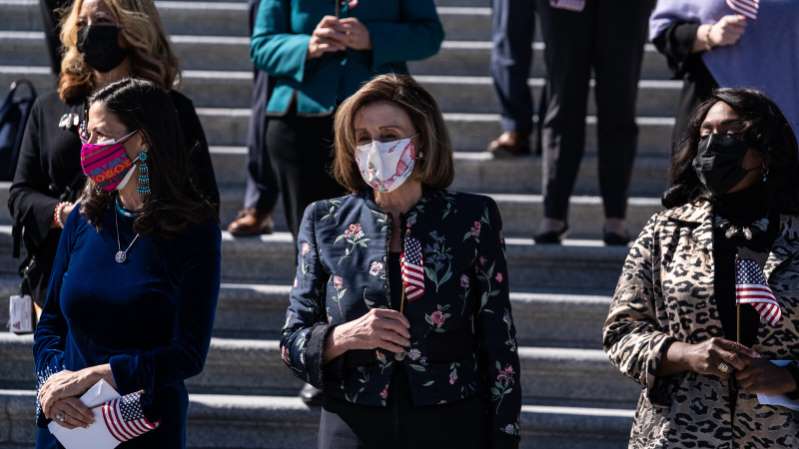
House passes sweeping voting rights bill
(WASHINGTON, DC) House Democrats pushed through a sweeping expansion of federal voting rights on Wednesday over unified Republican opposition, opening a new front in a raging national debate about elections aimed at countering G.O.P. attempts to clamp down on ballot access.

The bill, adopted 220 to 210 mostly along party lines, would constitute the most significant enhancement of federal voting protections since the 1960s if it became law. It aims to impose new national requirements weakening restrictive state voter ID laws, mandate automatic voter registration, expand early and mail-in voting, make it harder to purge voter rolls and restore voting rights to former felons — changes that studies suggest would increase voter participation, especially by racial minorities.

The vote was the latest bid by Democrats to beat back Republican efforts in statehouses across the country to enact new barriers to voting that would consolidate power for the Republican Party amid false claims of rampant election fraud heralded by former President Donald J. Trump and many of his allies in Congress.

But the measure, which is supported by President Biden, appears to be doomed for now in the Senate, where Republican opposition would make it all but impossible to draw the 60 votes needed to advance. Democratic leaders have vowed to put it up for a vote anyway, and progressives were already plotting to use Republican obstruction of the bill to build their case for jettisoning the legislative filibuster in the months ahead.
“Everything is at stake. We must win this race, this fight,” Speaker Nancy Pelosi, Democrat of California, said as Democrats rallied on the Capitol steps before the vote. “At the same time as we are gathering here to honor our democracy, across the country over 200 bills are being put together, provisions are being put forward to suppress the vote.”

The 791-page bill, designated H.R. 1 by Democrats to reflect its importance to their agenda, would also eliminate partisan gerrymandering, impose new transparency on dark money used to finance campaigns, tighten government ethics standards and create a public financing option for congressional campaigns.
The prominence of the debate demonstrated the immense stakes of the fight over election laws, both for how Americans exercise their right to vote and how both parties aggregate political power. While Congress has worked for decades to expand access to the ballot, often with bipartisan support, the issue has become a sharply partisan one in recent years, as shifting demographics and political coalitions have led Republicans to conclude that they benefit from lower voter participation rates, particularly around cities.

“You can win on the basis of your ideas and the programs you put forward, which is what we choose to do,” said Representative John Sarbanes, Democrat of Maryland and a leading author of the bill. “Or you can try to win by suppressing the vote, drawing unfair districts across the country and using big money to spread disinformation.”
Republicans made remarkably similar arguments, but sought to turn them back on Democrats. While they did not outright argue for making it harder to vote, they said that states — not the federal government — were best positioned to determine how to conduct their elections with integrity, and that the bill would lead to rampant fraud benefiting liberal candidates.
Study after study, including by Mr. Trump’s own Justice Department, has concluded no widespread fraud exists.

“In this country, if the people who win elections want to hold onto power, they need to perform well, pass sound policies and earn the support of the voters again,” said Senator Mitch McConnell of Kentucky, the Republican leader. “House Democrats do not get to take their razor-thin majority — which voters just shrunk — and use it to steamroll states and localities to try and prevent themselves from losing even more seats next time.”
For now, Republicans appear to have the upper hand.

States under conservative control have succeeded in recent years in imposing new strictures that studies suggest disproportionately affect Black voters and those living in urban areas. Proponents argue that the steps are necessary to combat potential election fraud. But the effort has been turbocharged in some places since Mr. Trump’s loss in November, with states racing to strengthen voter ID laws, to make it harder to vote by mail or vote early, and to limit the role outside groups can play in helping Americans vote.

And on Tuesday, the conservative-dominated Supreme Court signaled it was likely to uphold two restrictive Arizona election measures and potentially chip away further at the Voting Rights Act of 1965. A 2013 ruling by the justices struck down key enforcement provisions in the law and helped pave the way for the success of many Republican-led states in putting in place new rules.

